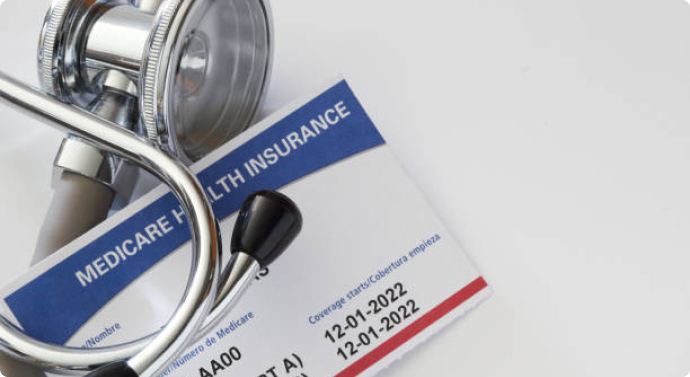

Principal writer, insurance and medicare advisory
MedicarePal principal writer Derick Dolivo covers Medicare. Smith believes in the power of education to help individuals make smart financial decis
- Written on August 10, 2025
- Updated August 17, 2025
At MedicarePal we strive to help you make smarter financial decisions. While we adhere to strict
Key Principles
We value your trust. Our mission is to provide readers with accurate and unbiased information, and we have editorial standards in place to ensure that happens. Our editors and reporters thoroughly fact-check editorial content to ensure the information you’re reading is accurate. We maintain a firewall between our advertisers and our editorial team. Our editorial team does not receive direct compensation from our advertisers.
MedicarePal follows a strict editorial policy, so you can trust that our content is honest and accurate. Our award-winning editors and reporters create honest and accurate content to help you make the right financial decisions. The content created by our editorial staff is objective, factual, and not influenced by our advertisers.
We’re transparent about how we are able to bring quality content, competitive rates, and useful tools to you by explaining how we make money.
Medicarepal is an independent, advertising-supported publisher and comparison service. We are compensated in exchange for placement of sponsored products and, services, or by you clicking on certain links posted on our site. Therefore, this compensation may impact how, where and in what order products appear within listing categories, except where prohibited by law for our mortgage, home equity and other home lending products. Other factors, such as our own proprietary website rules and whether a product is offered in your area or at your self-selected credit score range can also impact how and where products appear on this site. While we strive to provide a wide range offers, Bankrate does not include information about every financial or credit product or service.
Medicare is a vital federal healthcare program that provides coverage to millions of Americans, primarily those aged 65 and older, and certain younger individuals with disabilities. Applying for Medicare is a crucial step in accessing essential medical care and financial protection for healthcare expenses. In this comprehensive guide, we will walk you through the process of applying for Medicare, including who is eligible, when to apply, how to apply, and what to expect during the application process.
Eligibility for Medicare
Before applying for Medicare, it’s important to understand who is eligible for the program. Generally, you are eligible for Medicare if you meet one of the following criteria:
- Age: You are 65 years old or older.
- Disability: You have been receiving Social Security Disability Insurance (SSDI) benefits for at least 24 months.
- End-Stage Renal Disease (ESRD): You have been diagnosed with ESRD and require dialysis or a kidney transplant.
- Amyotrophic Lateral Sclerosis (ALS): You have been diagnosed with ALS, also known as Lou Gehrig’s disease.
When to Apply for Medicare
The timing of your Medicare application depends on your specific circumstances. Here are some key points to consider:
- Initial Enrollment Period (IEP): The IEP is a seven-month period that typically begins three months before your 65th birthday, includes your birthday month, and extends for three months afterward. It’s the best time to apply for Medicare to ensure you have coverage as soon as you become eligible.
- Special Enrollment Period (SEP): If you have employer-based health coverage when you turn 65, you may be eligible for a Special Enrollment Period. You can apply for Medicare without penalties when your employer coverage ends.
- General Enrollment Period (GEP): If you missed your IEP and didn’t qualify for an SEP, you can apply for Medicare during the GEP, which runs from January 1 to March 31 each year. However, coverage won’t begin until July 1 of that year, and late enrollment penalties may apply.
- Medicare Advantage and Part D: If you’re interested in enrolling in a Medicare Advantage (Part C) or a Medicare prescription drug plan (Part D), you can do so during the Annual Enrollment Period (AEP), which occurs from October 15 to December 7 each year.
How to Apply for Medicare
There are several ways to apply for Medicare, depending on your preferences and circumstances:
- Online Application:
- Visit the official Social Security Administration (SSA) website at www.ssa.gov.
- Create a My Social Security account or log in if you already have one.
- Follow the online instructions to apply for Medicare.
- You can complete your application in as little as 10 minutes, and you’ll receive a confirmation receipt.
- In-Person Application:
- Visit your local Social Security office. Use the SSA’s office locator tool to find the nearest office.
- Schedule an appointment if required or speak with a representative who can assist you in person.
- Fill out the necessary forms, and the representative will process your application.
- Phone Application:
- Call the Social Security Administration at 1-800-772-1213 (TTY 1-800-325-0778) between 7 a.m. and 7 p.m. Monday through Friday.
- Speak with a representative who will guide you through the application process over the phone.
What to Expect During the Application Process
Applying for Medicare is a straightforward process, and here’s what you can expect:
- Personal Information: You’ll need to provide personal information, including your full name, Social Security number, date of birth, and contact information.
- Work History: If you or your spouse have worked and paid Social Security taxes for at least ten years (or 40 quarters), you may be eligible for premium-free Medicare Part A. You may need to provide work history details to verify eligibility.
- Timing: If you apply for Medicare during your IEP, coverage will typically start on the first day of your birth month. If you apply during the GEP, coverage will begin on July 1 of that year.
- Documentation: Depending on your circumstances, you may need to provide additional documentation, such as proof of disability or information about your current employer-based coverage.
- Medicare Card: Once your application is processed, you will receive a Medicare card in the mail. This card will indicate which parts of Medicare you are enrolled in (Part A, Part B, or both) and will show your Medicare ID number.
After You Receive Your Medicare Card
After receiving your Medicare card, there are several important steps to take:
- Understand Your Coverage: Familiarize yourself with the coverage provided by Medicare Part A and Part B. Part A typically covers hospital care, while Part B covers medical services and doctor’s visits.
- Consider Additional Coverage: You may want to explore additional coverage options, such as Medicare Advantage (Part C) or a Medicare supplement insurance plan (Medigap), to enhance your coverage.
- Prescription Drug Coverage: If you haven’t enrolled in a Medicare prescription drug plan (Part D), consider doing so to help cover the cost of your medications.
- Keep Your Card Safe: Protect your Medicare card as you would your Social Security card. Do not share your Medicare ID number with anyone other than trusted healthcare providers.
- Explore Preventive Services: Take advantage of Medicare’s preventive services, including screenings and vaccinations, to maintain your health and well-being.
Applying for Medicare is a critical step in accessing essential healthcare coverage as you age or face certain disabilities. By understanding the eligibility criteria, knowing when and how to apply, and following the application process, you can ensure that you receive the healthcare benefits you need. Medicare is a valuable resource that provides financial protection and access to healthcare services, contributing to your overall health and well-being as you navigate the journey of aging or managing a disability.
Was this page helpful?
Medicare Pal adheres to stringent sourcing guidelines, prioritizing primary sources including medical organizations, government agencies, academic institutions, and scholarly journals with peer review. Discover the methods we use to guarantee the accuracy, comprehensiveness, and impartiality of our content in our editorial guidelines.

Do You Need Help With Medicare?
Call us Now 1-866-706-7293











